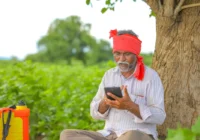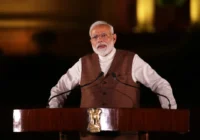In 2016, India’s National Crime Records Bureau reported 338,954 incidents of violence against women, including 38,947 rapes, up from 309,546 in 2013. Forty percent of the victims were children. In the same year, only one-third of child sexual abuse cases brought to trial had resulted in convictions. What we are confronted with is the unspeakable horror of a woman or child being assaulted every six hours in India.
The National Family Health Survey released by the Union Health Ministry indicates that every third woman has faced domestic violence of various forms since the age of 15. Among married women, 83% reported their spouses as perpetrators of violence. For unmarried women, the perpetrators are usually mothers or stepmothers (56%), fathers or stepfathers (33%), sisters or brothers (27%) as well as schoolteachers (15%).
Dignity and Respect
“The idea for URJA came about after years of working on women’s rights in the by-lanes of the red light area of Kamathipura in Mumbai, in the trafficking that goes on in villages of Maharashtra and Bihar, and other forms of gender-based violence,” says Anjali Pathak, a lawyer and founder of URJA, a New Delhi-based NGO dedicated to helping victims of gender-based violence. She says she was inspired, above all, “simply by listening to women’s voices and their heart-rending stories of everyday violence — how they were negotiating their journey to live a life of dignity and respect despite all the atrocities they face.”
It took Pathak a long time to turn the idea into reality. Najafgarh, the second most populous town in National Capital Territory of Delhi, was chosen as the base of operations because it is an area where “patriarchy, social class divide, sheer male domination and inequalities between men and women are deeply ingrained in society,” says Pathak. “There is a sharp gender divide where gender stereotypes — boys should be earning, aggressive, and girls to be submissive, caring, docile — has been internalized by both men and women, thereby making women vulnerable to violence,” she says, adding that “rape, trafficking, abduction, dowry, molestation, high level of female illiteracy, acid attacks, prostitution and cruelty by [the] husband exacerbate the social and economic exploitation of women.”
Indeed, given the harsh conditions, rarely do women find the courage to leave their husbands to get justice, proper guidance and counseling. This is where URJA comes in, providing legal counsel to traumatized women and spreading awareness in the community so that women are informed and have a recourse when they need it. In addition to pro bono legal work, URJA focuses on providing economic and livelihood opportunities to women and girls, empowering them with the requisite skills to lead independent lives.
At the outset, URJA conducted a survey covering a population of more than 30,000 people in 22 villages surrounding Jaffarpur Kalan, a village situated on the southwest boundary of Delhi, falling under Najafgarh Vidhan Lok Sabha (the lower house of India’s Parliament) constituency of West Delhi. “In most families men are alcoholic, doing odd jobs and earning sporadically, leaving the woman to fend for the family,” says Pathak. “She has to make both ends meet either by borrowing from relatives or friends. Alcoholism and lack of sufficient income at home is the major cause of friction within the families, leading to increasing cases of domestic violence and economic abuse.”
Based on their findings, URJA implemented the Mahila Panchayat program under the aegis of the Delhi Commission for Women. From November 2017 to July 2019, they handled more than 600 cases. Around 350 of these were related to domestic violence, sexual harassment, assault, rape and murder. Additionally, they helped local women access government schemes like AADHAR identification numbers, ration cards, widow and retirement pensions. In Pandvala Kalan, the adjacent village, Balwadi classes for preschoolers, supplementary classes to curb drop-out rates and vocational skills development courses for migrant women and adolescent girls were implemented.
A Way Out
The women (all names have been changed for the purposes of anonymity) who seek help from URJA are all looking for a way out of what can often seem as impossible situations. Seema, a 24-year-old woman from Najafgarh, married into a family of six brothers. Her husband and his brothers were all addicted to cannabis, opioids and alcohol. Within a year of marriage, Seema’s husband started beating her. On one occasion, he beat her so badly that she became unconscious. Then he locked her up and didn’t give her any food or water for 24 hours. Somehow, she managed to call her brother, who called the police. She was rescued and sent to her parents’ place.
After a few days, Seema’s husband came to her parents’ house and begged her to come back home, apologizing profusely for his behavior. The family sent Seema back to her matrimonial home. Within a few days, her husband beat her again. This time her mother-in-law also intervened and told her that she had to sleep with all the brothers if she wanted to stay in the family.
On hearing this, Seema ran away and went back to her parental home. Her husband’s family continues to threaten her with dire consequences if she does not return. Against all odds, she approached URJA, and a case against her husband and his family was lodged in the district court.
Meera Devi, a 35-year-old housewife and mother of two from Pandvala Kalan village, was often beaten to the point of unconsciousness by her husband, a repeat offender with a history of abuse. Often, her wages, earned through domestic work and manual labor, were snatched by the husband to feed his alcohol habit. If she resisted him, Meera was thrashed, and had to be taken to the hospital for her injuries on several occasions. Somehow, she mustered the courage to approach URJA to file a case on the basis of domestic violence and cruelty. The URJA is providing her with help in terms of legal counseling and advice, and is helping her to find a job so that she can sustain her family.
Krishna Kumari, 28, had a love marriage with Vinod against her parents’ wishes, and gave birth to a son out of wedlock. Shortly after giving birth, she discovered that her husband was having an extramarital affair. She confronted her husband, who initially denied the accusation. However, he was caught red-handed and confessed to the affair, declaring that he would continue seeing his mistress.
This led to regular fights, until one day Krishna gave him an ultimatum of having to choose between the two. On hearing this, he proceeded to beat her with iron rods. On another occasion, he stripped her naked and struck her on her private parts. Humiliated, she contacted her parents and approached URJA for help. URJA counseled her and gave her legal assistance through filing her complaint at the police station, and subsequently helped her get a job.
Life at Its Darkest
On November 10, URJA is hosting the first in a series of benefit shows and workshops in conjunction with Coven Code, a collective of talented female musicians based in New Delhi. The evening will start with a legal aid workshop led by Pathak, followed by live performances by the ladies of Coven Code.
URJA is also in the process of teaming up with theater groups and music festivals to co-host events across India before continuing to the United States. All proceeds from the events are meant for a legal aid and counseling center, as well as an advanced training center for livelihood development so that women can gain employable skills to escape violence at home.
Through these efforts, URJA hopes to raise awareness for a crisis that affects one out of every three families in India, to help the survivors lead lives of dignity and, more importantly, ensure that they have a place to go to when life seems at its darkest.
*[The author is a consultant with URJA, handling special projects and resource mobilization.]
The views expressed in this article are the author’s own and do not necessarily reflect Fair Observer’s editorial policy.
Support Fair Observer
We rely on your support for our independence, diversity and quality.
For more than 10 years, Fair Observer has been free, fair and independent. No billionaire owns us, no advertisers control us. We are a reader-supported nonprofit. Unlike many other publications, we keep our content free for readers regardless of where they live or whether they can afford to pay. We have no paywalls and no ads.
In the post-truth era of fake news, echo chambers and filter bubbles, we publish a plurality of perspectives from around the world. Anyone can publish with us, but everyone goes through a rigorous editorial process. So, you get fact-checked, well-reasoned content instead of noise.
We publish 2,500+ voices from 90+ countries. We also conduct education and training programs
on subjects ranging from digital media and journalism to writing and critical thinking. This
doesn’t come cheap. Servers, editors, trainers and web developers cost
money.
Please consider supporting us on a regular basis as a recurring donor or a
sustaining member.
Will you support FO’s journalism?
We rely on your support for our independence, diversity and quality.






